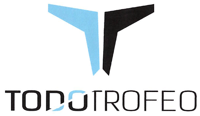Features Nagano Marathon
01 July 2015, 7am UTC
Powered by the Olympic rings
Nagano Marathon
Sun 19 April 2015
Nagano is a city of 400,000 people located in the central part of Honshu, Japan’s main island. The 1998 Winter Olympic Games were held here and the Nagano Marathon was launched as a ‘legacy’ event in 1999 called the “Nagano Olympic Commemorative Marathon”.
But the city has a much longer association with the Marathon having staged a national event, the Shinmai Marathon, since 1958. This race had incorporated a women’s competition since 1980. The last edition held was the 41st, in 1998, before the baton was taken up by the current event.
The intention behind the re-launch was so that: “the Nagano Marathon reminds us of the inspiration of the 1998 Nagano Winter Olympic Games, keeping the excitement ringing in our hearts and contributing to the development of regional sports, culture and the Olympic Movement.”
The course is point-to-point, starting at the Nagano City Athletic Park where the ice hockey stadium of the 1998 Nagano Winter Olympic Games is located and heading south to pass the Zenkō-ji temple, the foremost cultural and touristic site in the city, before finishing at the Olympic Stadium. The route incorporates four of the former Olympic venues into the race.
The Shimai event had been a domestic marathon but the new race was always intended to be international. Only two Japanese men have won the Nagano Marathon: Akiyo Onishi in the first race and the prolific Yuki Kawauchi in 2013. Before 2004 the race was run on a downhill course well over the allowable limit for record-eligible performances. The current course is relatively flat with only a 5m incline from start to finish.
Francis Kibiwott (2:09:05 in 2012) and Alevtina Ivanová (2:26:38 in 2008) are the current men’s and women’s course record holders — although Madina Biktagirová ran 2:26:09 on the downhill course in 2002). Kenyan men have won 12 of the 16 races while Russians have dominated the women’s race with 10 victories. Nephat Kinyanjui of Kenya won the race a record three times in succession between 2006 and 2008. The race was not held in 2011 because of the disruption of the Tokohin earthquake and tsunami.
Of the 9558 participants in the 17th edition a record-breaking 8372 runners (87.6%) officially finished. The race has a five-hour limit for completion which is a relatively high hurdle among mass participation races in Japan.
At 08.30 when the race started the temperature was 9.6C and the sky was lightly cloudy. It was a perfect day for a marathon race. Many of the runners wore the lime-green race T-shirts that helped us feel springtime in the air.
Naoko Takahashi, the Olympic gold medalist in the Women’s Marathon at the 2000 Sydney Olympic Games, was guest of honour. She encouraged the runners to drink liquids as often as possible and cheered them with high-fives. The runners all waved to her in response.
Just before six kilometres the Zenko-ji Temple, a national treasure, appeared on the right when making a left turn there. The course then led runners to the central avenue which descends into the heart of Nagano City. This year was the once-in-seven-years unveiling of the treasured Buddhist image at the Zenko-ji Temple. As a result many worshippers along the course who had come to pray for blessings also sent cheers. Runners responded to the constant cheering of the spectators by giving high-fives as a pledge that they would put up a good fight.
The course leads around the athletic facilities that had been used for the Nagano Winter Olympic Games, starting from the Big Hat, the M-Wave, the White Ring, and finally the Nagano Olympic Stadium that had been the the setting for the opening and closing ceremonies of the Olympic Games.
There was a constant stream of performances on the roadside by Taiko drummers, choruses, and alphorn players that in particular delighted the 366 overseas runners from 35 different countries and regions. The last half of the course leads along the Chikuma River where colourful peach and apple blossoms and yellow rapeseed helped the runners to battle their fatigue.
It started drizzling before noon but the rain kept the temperature low and running conditions favourable. Naoko Takahashi, Yoshimi Ozaki and two-time Olympic Marathon silver medallist Eric Wainaina, who spent much of his career in Japan and won this race twice, ran alongside the citizen runners to give them encouragement.
Runners pressed on to complete their 42,195m and were smiling when they received finisher towels and medals. There were some among them who shed tears and others who collapsed on the ground as they crossed the finish line. All expressed their gratitude to everyone involved, saying things like: “the cheering of the spectators re-energised me”; “thanks to them I was able to record my personal best time” and “I’d like to say thank you to all the many volunteers.” They joyfully waved their hands, saying “We’ll meet at this marathon again next year.”
Result
marathon
Men
| 1 | Henry | CHIRCHIR | KEN | 2:11:39 |
| 2 | Tomohiro | TANIGAWA | JPN | 2:11:39 |
| 3 | Kauhei | OGINO | JPN | 2:11:42 |
| 4 | Takayu | FUKATSU | JPN | 2:11:48 |
| 5 | Taiga | ITO | JPN | 2:12:04 |
Women
| 1 | Beatrice | JEPKEMBOI | KEN | 2:34:02 |
| 2 | Eri | OOKUBI | JPN | 2:37:30 |
| 3 | Yumiko | KINOSHITA | JPN | 2:40:56 |
| 4 | Syoko | MORI | JPN | 2:41:47 |
| 5 | Chihiro | TANAKA | JPN | 2:44:11 |





